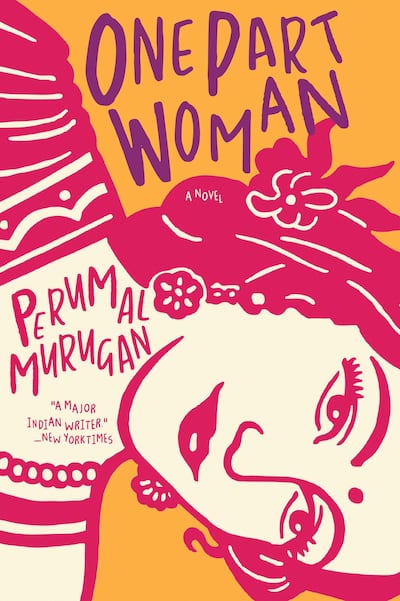Set around the turn of the 20th century in a small farming community in South India, the passing of time in Perumal Murugan's novel One Part Woman is marked by the rhythms of nature: the spreading branches of a portia tree, the flowers of which "always grow more beautiful as they fade"; the sowing of seeds and the harvesting of the crop; even the scratching of chickens in the dirt of the barnyard.
Murugan’s characters – especially Kali, his anti-hero – are just another part of this natural world: “This was the land in which he was born and raised. This was the place he had roamed about as a child. There was no place here that he did not know.”
Murugan's publishers describe him as "the star of contemporary Tamil literature", but when it was first published in India, One Part Woman brought him notoriety. Incensed by its scandalous contents, right-wing groups burnt copies of the book and called for its ban. The protests were so bad, Murugan was actually hounded out of his own village.
Luckily, a landmark case in the Madras High Court defended "the rights of artists to critically depict their own communities", and the book received critical acclaim and went on to sell 100,000 copies (both in the original Tamil edition and the English translation, which was competently undertaken by Aniruddhan Vasudevan, though an occasional phrase that strikes as a little too modern does sneak through).
Despite having been married for nearly a decade, Kali and his wife, Ponna, are still very much in love: “Ponna’s body just dragged him into itself and presented him with whatever he needed. It even gave, volitionally, what he did not ask for, what he did not even know existed.”
There is only one disappointment: they have no children. Despite years of trying – "In the matter of offering prayers, Kali and Ponna left no stone unturned. They did not discriminate between small and big temples. They promised an offering to every god they encountered" – Ponna hasn't been able to conceive. The couple's childlessness sits at the heart of their marriage, and at the hearth of their home; a gaping void that invites comment from everyone around them.
This close-knit rural community is one in which "people found great pleasure in poking and prodding other people's miseries". Everyone has something to say about what everyone else is up to. "The wretched people around us do not see what a man has," Kali's mother cautions him wisely. "They only see what he does not have. We have to hold our heads high in front of these people, my son." The even-tempered Kali is used to being "the butt of ridicule in the village", of people joking that he's not a "real man", but Ponna, who is the victim of more cruel attacks – she's blamed for bad harvests and told to stay away from certain ceremonies for fear of bringing with her bad luck – retorts to these assaults in kind, lashing out with her "sharp tongue".
Although the story begins 12 years into this marriage, Murugan's narrative keeps circling back in time, illuminating episodes in the couple's past, only to then bring us back to the present day, before looping back on itself again. It's an elegant, highly effective way of adding layers of complexity to his protagonists' predicament, since in their interactions with each other, they too find themselves encircling the same issue over and over again; making their peace with their childlessness, only to find themselves suddenly gripped with fresh longing and lack.
They muddle through, however, and Murugan's depiction of their life together is unusually sensitive; he has a keen eye for the everyday acts of kindness and affection that constitute a happy marriage. Unfortunately, though, they can't stop their families from plotting. Once a year, the annual chariot festival – a celebration of the half-male, half-female god Maadhorubaagan – presents a unique opportunity. On the final night of the revelries, "all rules were relaxed".
Under the cover of darkness, all men are considered gods, and the married women they walk among are allowed to spend the night with whomever they choose. It wouldn't be the first time, the couple are told, that a supposedly barren wife has begat herself a half-divine child: "The gods have made sure everyone lacks something or the other. But the same god has also given us ways to fill that lack." No one outside the family need even know, all Kali needs to do is give his permission.
One Part Woman is a moving, quietly magnificent portrait of a tender, loving marriage that’s buckling under the impossible strain of meddling busybodies and the weight of conventional societal expectations.


